During the final days of his presidency, Vice President Joe Biden granted a number of high-profile pardons, which created a heated debate and raised concerns about the potential repercussions for the individuals who were granted the sentences.
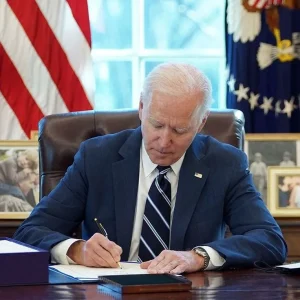
Pardons were granted to a number of persons, including Dr. Anthony Fauci and Liz Cheney, a former Republican congressman who is currently at the center of a number of contentious and acrimonious controversies. It has been brought to the attention of legal experts that the strategy may have consequences that were not anticipated.
despite the fact that the White House has described the pardons as a preventative measure to shield these individuals from any punishment that may be imposed by a Congress that is run by Republicans and by former President Clinton.
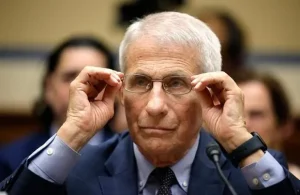
In the midst of a period of heated political disagreement, the pardons come at a time when the newly elected members of Congress, who are controlled by the Republican Party, have promised to rigorously monitor and investigate conduct that occurred during and after the administration of Vice President Joe Biden.
As a well-known opponent of Trump and co-chair of the House Select Committee investigating the event that occurred in the Capitol on January 6, 2021, Cheney has been the target of anger. Because of his effect on COVID-19 policy, conservatives have regularly attacked Dr. Fauci, an immunologist who has worked for a long time and who served as the Chief Medical Advisor to the President after he left office.
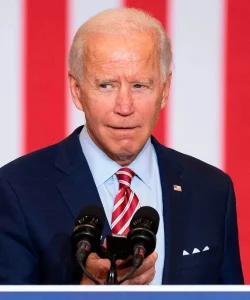
According to advisers at the White House, the decision to grant a pardon was mostly in response to concerns on the possibility of politically motivated charges under the new administration. It has been reported that Vice President Biden viewed the pardons as a way to protect persons such as Cheney, Fauci, and others who have been instrumental in advancing investigations and policies that are absolutely necessary for the legacy of his administration.
President Biden is a firm believer in protecting public servants who have devoted their life to preserving democracy and defending public health, according to a top source within the White House. For the goal of ensuring fairness and protecting these individuals from partisan vendettas, these pardons are not intended to absolve them of any responsibility for their actions.
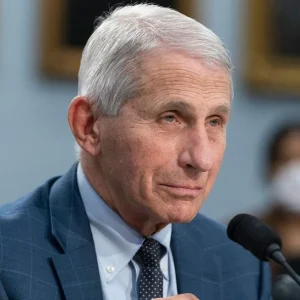
In spite of the fact that pardons are normally granted to individuals who have been found guilty of committing crimes, they can also be granted in advance, as was the case in this particular instance, in order to eliminate the possibility of legal risk.
The move, on the other hand, has not always been met with favorable reactions from people. The receivers of pardons are not exempt from testifying under oath if they are subpoenaed, according to legal experts, despite the fact that pardons might shield individuals from punishment for certain offenses. Justice Jesse Binnall, a federal litigation attorney, made it clear that pardons do not offer protection against allegations of perjury or obstruction of justice in the event that the receiver lies while testifying.

These pardons, as stated by Binnall, “may actually create new vulnerabilities for Cheney and Fauci,” among other things. Despite the fact that they may be protected from punishment for acts that correspond to the specific charges that are covered by the pardons, they are nevertheless subject to the political and legal implications of their subsequent behavior, particularly in the event that any congressional investigations are conducted.
It was also mentioned by Binnall that the public’s faith in the justice system could be harmed if individuals who had not been accused of committing a crime were granted a pardon. According to what he said, “Preemptive pardons have the potential to create the appearance of wrongdoing where none has been officially established.”
The potential repercussions of Biden’s decision have both conservative and liberal critics expressing their concerns about the matter. When it comes to protecting supporters from criticism, some Republicans view the pardons as a last-ditch effort, while progressive Democrats argue that the pardons could undermine public confidence in the administration’s commitment to transparency.
As a “political stunt” designed to “protect Biden’s cronies,” the pardons were criticized by Kevin McCarthy, the Republican Speaker of the House of Representatives. McCarthy went on to say that the oversight actions of the Republican-controlled Congress would continue, including the subpoenaing of other notable officials such as Fauci and Cheney. For McCarthy, “no pardon can absolve anyone of responsibility to the American people,” and he made this assertion.

While this was going on, a number of Democrats expressed their fear that subsequent administrations may utilise the precedent that was established by preemptive pardons. Despite the fact that I am aware of the president’s objectives, Senator Elizabeth Warren expressed her concern that this method could potentially undermine the notion of equal justice under the law.
There have been allusions made by White House officials to actions that were carried out during Cheney’s tenure on the January 6 Committee and Fauci’s management of the COVID-19 epidemic. However, the specific acts that are covered by the pardons have not been disclosed in their entirety. The lack of transparency has been cited by a number of legal scholars as a source of criticism and speculation, and they have urged for a comprehensive explanation of the purview and purpose of the pardons.
“It is difficult to assess their legal and ethical implications without clarity on what these pardons entail,” says Kimberly Wehle, a professor of constitutional law. “It is difficult to assess,” “The administration ought to be transparent about the rationale behind these decisions in order to prevent the issue from becoming even more politicized,” the commentator said.
Federal investigators may continue to keep a tight eye on Cheney and Fauci even after the pardons have been granted. On the other hand, legal experts point out that pardons do not give total immunity from all duties, despite the fact that they protect a person from prosecution for certain crimes.
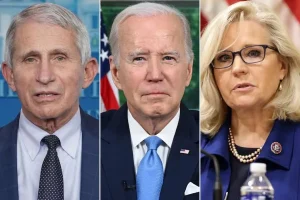
If Cheney and Fauci are asked to testify before Congress, Wehle noted that they are still legally compelled to answer questions in an honest manner. They are not granted authority to avoid scrutiny or to deceive legislators by virtue of the pardon.
The possibility of subpoenas is still a significant one, given that Republicans have indicated their intention to investigate a wide range of topics, including the reasons of COVID-19, the pandemic reaction of the Biden administration, and the investigation that took place on January 6. Cheney and Fauci have both expressed their willingness to assist with legitimate inquiries, but they have also expressed their concerns regarding the prospect of harassment that is motivated by political considerations.
In the end, the decision that Vice President Biden made to give these pardons served as an indication of the complicated political landscape that he is managing. However, despite the fact that they would offer some protection to Cheney, Fauci, and other individuals, the pardons pose significant risks not only for the individuals who are implicated but also for the administration’s reputation in general.
Wehle made the following observation: “The president has made a choice that is both courageous and controversial.” To assess if these pardons are successful in achieving their objectives or whether they are counterproductive in that they attract even more attention and criticism, it will take some time.
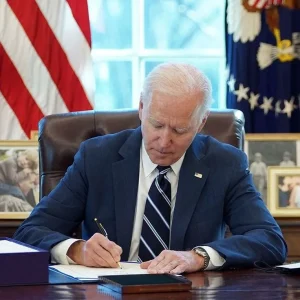
The controversy that surrounds these pardons will continue to dominate the coming weeks and months, the narratives of Biden’s legacy, and the agenda of the newly Republican-led Congress. This is something that is becoming increasingly apparent as the legal and political challenges continue to unfold.